The Gift of Giving
When COVID-19 pandemic restrictions hit in March 2020 and opera companies could no longer welcome large groups into their spaces, most acted as other businesses did: They found ways to continue serving the people who depended on them. At Lamplighters Music Theatre in San Francisco, that initially meant providing both free and reduced-price digital content. In April, the company broadcast its first livestream. In July, its first recording from its archives was shared with audiences. These were so popular that the company started doing a monthly broadcast, sometimes for free and sometimes on a “pay what you can” basis.
The virtual performances were a lifeline for the company’s audience, which skews toward an older demographic and was largely homebound in the early months of the crisis. And in the end, the pandemic — and the community and government support that came along with it — ended up giving the staff and board at Lamplighters a renewed mission around civic engagement and its ability to provide public value.
“We’ve completely changed the way we cast shows since the George Floyd murder and Black Opera Alliance work we have joined,” says Executive and Interim Artistic Director Cheryl Blalock. Under a new “intentionally invitational” initiative that involves reaching out to diverse singers and asking them to audition, the company has increased the number of BIPOC performers by 30 to 40 percent for its new programming.
In addition, “We have just awarded our very first commission for a new operetta to James Sasser and Charles Vincent Burwell, to be workshopped in 2022 and performed in 2023,” Blalock says. “We consciously chose a team and theme to tell the story of underrepresented people. This is a big step; the first commission of a new work in Lamplighters’ 69-year history.” The company is one of San Francisco’s oldest performing arts organizations and is known for its excellent traditional operettas and classic musicals. Says Blalock, “To move forward with a new work that seeks to reach a younger and more diverse audience is both a joy and a risk” — one that would not be possible without the support of federal and state grant programs that were created during the pandemic but will bring positive results for years to come.
Efforts like this demonstrate that when the powerful possibilities of art are paired with a mindful effort to produce public value, opera becomes a tool for engagement, a force for community development, a way to bring people and communities together.
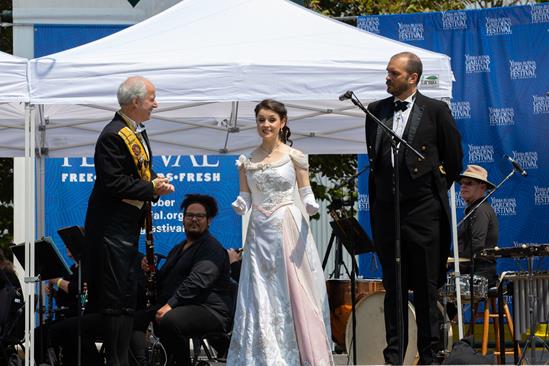
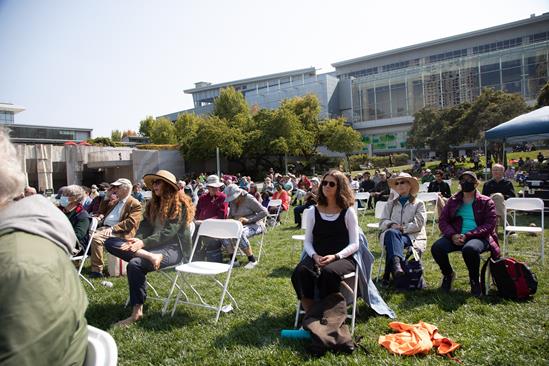
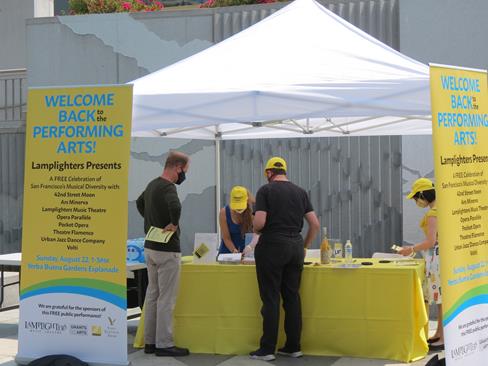
In 2020, Opera Birmingham adapted its Opera Shots program, which provided pop-up concerts at bars and restaurants, into outdoor performances it called Opera Shots on the Road. “It was a way of giving back to the community and keeping artists employed” in the face of COVID-19, says General Director Keith A. Wolfe-Hughes, but it was also a way to make opera more accessible.
“When most of the major arts organizations [in Birmingham] were formed, segregation was very entrenched and non-White people were prevented from attending most of those organizations,” says Wolfe-Hughes. “During that same time, redlining was a big part of where people could buy a house and live, so the neighborhoods were clearly segregated, as well, and you can see that history as part of the community today. For us, by taking Opera Shots on the Road out into neighborhoods across Birmingham, it is a chance for us to be a part of communities who traditionally wouldn’t have been invited into the opera house, especially when the memory of past exclusion is still very much alive.” The company has no plans to discontinue Opera Shots on the Road or its other pandemic-induced services, including Zoom voice lessons for residents of Birmingham and the state’s rural communities.
Lamplighters has also used public performances in non-traditional spaces to try and reach new audiences. Once pandemic restrictions began to lift, it organized a free music festival at San Francisco’s Yerba Buena Gardens. Blalock called it a “taster’s choice of what was going on in the city” because it included four opera companies, two dance groups, one musical theater group, and a chorus. Each group had 10 to 15 minutes in front of an audience of over 400. “It was exciting to be able to present our peers, as well, and to have this format where if anyone didn’t like one thing, there was something else coming in 10 minutes,” she says.
Making opera more accessible to larger, more diverse audiences has been a theme for several companies over the past few years. In 2019, Nashville Opera began work on an opera masterclass series with HBCUs Tennessee State University and Fisk University. When COVID-19 began shutting down schools and performance venues, the organization transitioned the masterclass to a live virtual format instead.
The first four classes, which took place in fall 2020, were roundtables where students were able to interact and ask questions of teaching artists from all over the country. In the spring of 2021, Nashville sponsored another five sessions, this time with singing and individualized feedback from the teaching artists. These sessions also covered opera repertoire. The final seminar, taught by Dr. Louise Toppin, focused specifically on the repertoire of Black composers. The series was so successful it’s taking place again this school year.
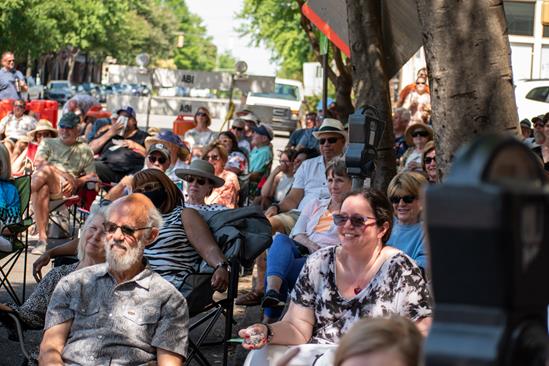
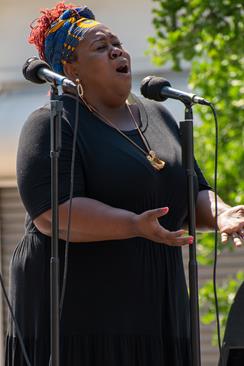
Companies have not shied away from conversations about important social issues. Opera Birmingham’s production of Glory Denied was coupled with discussions about PTSD and suicide prevention with staff from local veterans’ organizations. This month’s performances of dwb (driving while black), as well as a previous production of Independence Eve, included talks about the changing role of race relations in America.
Nashville Opera was commissioned to create an opera on women’s suffrage to celebrate the movement’s 100th anniversary in 2020. (Tennessee was the 36th state to ratify the 19th Amendment, which made women’s suffrage legal in the United States.) “When I started doing research, one thing I found is that when women received suffrage, not all Black women did,” says John Hoomes, the company’s CEO and artistic director. One Vote Won zeroed in on the disenfranchisement of Black voters, the civil rights movement in Nashville, and the importance of voting — a valuable non-partisan message before the 2020 presidential election.
Although public value may be about doing things that aren’t self-serving, the side effect is that these programs often help companies gain or keep much-needed support. Sarasota, Florida, like many communities, received a significant investment from the CARES Act. “When local leaders started a conversation about how the money would be allocated, the arts weren’t part of the conversation,” says Richard Russell, general director of Sarasota Opera — despite the fact that Sarasota’s rich local arts community is also the second-largest employer in the county. “We had to make a very serious case to our county commission about the value of arts in this community.”
One reason the arts were overlooked was the perception by some that arts organizations are elitist institutions serving a small, select clientele. Russell, of course, views things differently.
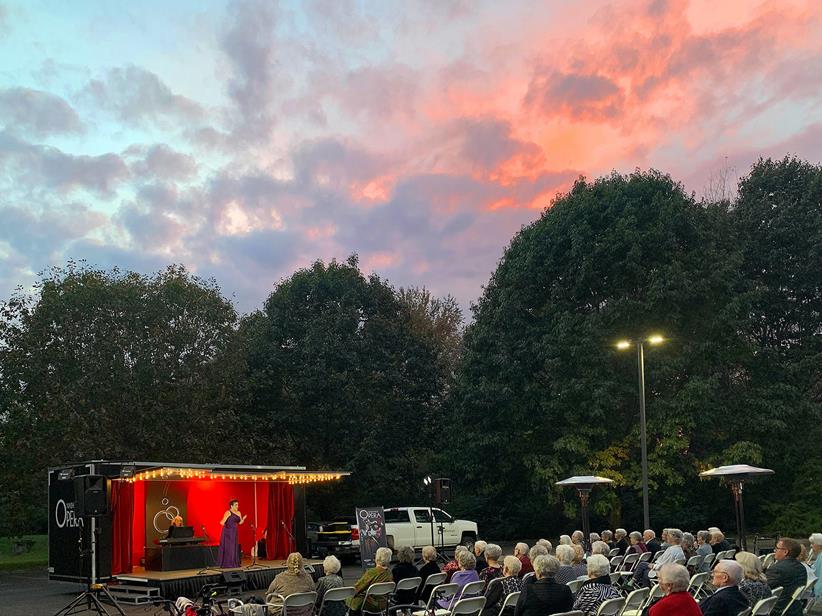
“We’re there for many parts of our community,” he says. “When you think of a retirement community, people think of wealthy people, but there are a lot of people on fixed incomes in Sarasota. We give performances at retirement homes. We have very vital public education programs and relationships with the schools. It’s important that we’re trying to counter that elitism label and let people know we participate in the community in many more ways than they think.”
Russell and his colleagues have also underscored the economic value of the arts — one that goes well beyond direct impacts like employing people and indirect impacts such as the money people spend going out to dinner or staying in a hotel. “We’re trying to bring new businesses to Florida, and our local economic development agency is starting an initiative for creative industries related to arts and technology,” he says. The region has five universities, including the well-known Ringling College of Art and Design, and they would like to keep more of those graduates in the area. To do that, they need good jobs or a healthy entrepreneurial environment for those people.
For tech companies looking to relocate to the region, a robust arts community can provide vitality and inspiration. Film companies looking to take advantage of incentives provided by the public sector get an extra boost if they can access talent, venues, and other infrastructure that’s already in the area. The arts are a significant differentiator for Sarasota, Russell notes.
For him, all of this underscores the value of being part of the broader community conversation. He is now on the board of the local tourism organization and is much more active with the economic development agency. “You have to be participating with your legislators and your business leaders,” he says — in bad times as well as good. “You have to be sitting at the table with all of them and having them recognize the value you bring to your community. You can’t just rely on your patrons.”
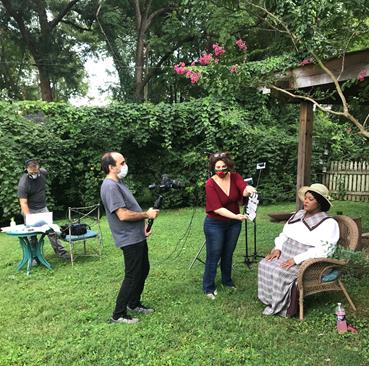
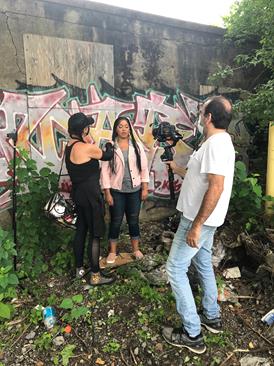
It’s worth noting that providing public value doesn’t have to be a major undertaking. “I spend a lot of time thinking about the communities that we don’t serve,” says Erika Rauer, executive director of Eugene Opera, which provided outdoor performances at a local park during the pandemic to serve existing and new audiences. “I think about the groups I see gathering for football games, or on hikes, or at other community events.” When she looks at them, she sees not the prospect of converting them to ticket buyers but the potential of improving their lives in some small way. “Maybe we provide a beautiful song during the Christmas tree-lighting ceremony, or an unexpected pop-up experience at a comedy event. Maybe we make them smile or tear up for just a moment. I’d like to do more of that.”
Opera Omaha has been widely recognized for its Holland Community Opera Fellowship and other community engagement programs. But General Director Roger Weitz says not all partnerships have to be big ones. “When
we asked [other community groups] what they needed, part of it was just visibility and having attention drawn to their organizations and the needs of the people they serve,” he says. The opera has a good-sized following on social media, so it now partners with other groups to shine a light on their important work.
For companies looking to increase their public initiatives, large or small, Hoomes recommends taking a simple first step such as contacting potential partners to gauge their interest. “We were unsure what the reaction would be when we first started reaching out to Tennessee State and Fisk,” he says. “Everybody is busy. But they were so open and interested. A lot of people are just waiting for someone to be in touch.”
The important thing is to start somewhere. “I have always been someone who wants to do something,” Wolfe-Hughes says. “We can have conversations on best practices and all those things, and that’s great because we want to learn and do better, but at a certain point, you have to just do something.”
This article was published in the Winter 2022 issue of Opera America Magazine.

Sophia Bennett
Sophia Bennett is the editor of Opera America Magazine.






